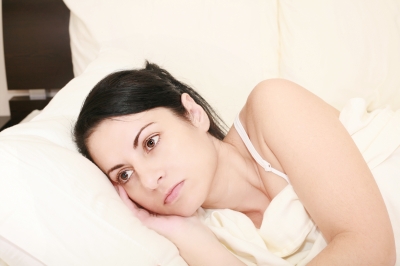Health
Strategies To Fight Insomnia

We all have our bad nights of sleep, but when trouble sleeping becomes frequent, it can be very distressing. Not only does our cognitive functions suffer, our emotions and body can take quite the hit too. Trouble sleeping can be a challenging thing to tackle, and the stress of it just exacerbates the problem. But, there are solutions—you just need to be willing to experiment a bit, and perhaps, change some lifestyle habits that are contributing.
If self-care does not seem to be working, and your inability to sleep is having serious repercussions in your life, it is likely you will need some professional assistance. Talk to your doctor or make an appointment at a sleep study center. Prolonged insomnia can have serious consequences for your health and safety.
Keep to a Regular Sleep Schedule
This is one of the most effective ways to improve our sleep but also one of the hardest. If you keep your own schedule, you may find you get up and go to bed at all different times because you can. If you work a typical 9-5 it is tempting to sleep in late on the weekends. While you don’t need to get up the same exact time each day, keeping to the same general time frame will program your body to sleep better.

Create an Evening Ritual to Ease into Sleep
Our bodies respond very well to programming, and we can groom our minds and bodies for sleep with some sort of evening ritual that sends the message it is time to slow down and go to dreamland soon. There is no one best way, and it is important you find something that resonates with you. The key is to feel like you are winding down and relaxed. It might be a nice hot shower or bath, followed by some candlelit meditation, or perhaps, putting away the electronics for the evening, and spending the remaining hour before bed with some light reading. When we climb into bed all riled up, it can be hard to go from 60 to zero in a short amount of time. You’ll feel wired, which will just add to your sleeping woes.
Food and Drink Considerations
What you eat and drink, and when, can also have an impact on your sleep. Avoid eating foods for dinner that may give you heartburn-it can strike while you are sleeping, causing you to wake up and not be able to go back to bed. If you consume caffeine, it may be good to keep it to the morning only-at the very least, don’t consume it in the evening. You should experiment here to see if cutting yourself off early makes a difference. Ideally, you want to ease into cutting it out altogether at least temporarily to see if it makes a difference. You may think you can’t live without your coffee, but if your sleeping improves, it might not feel so hard to give it up. Don’t drink close to bedtime—while alcohol may help you fall asleep, it will likely disrupt it later on in the evening. Don’t eat heavy snacks before bed, and try to eat your last meal at least two to three hours before your usual bedtime.
Keep Worries from Getting in the Way
Worries can really creep in at night as everything slows down, and especially once we crawl into bed. If you find yourself thinking of all that needs to be done the next day, get out a pad and write out your to-do list. If general stresses are getting to you, a ‘worry journal’ can be a really good idea. Just pour your heart out into it, and work on seeing what you can do to resolve these various issues. There is a lot of power in bringing things out of our heads, where they can feel more intense.
Don’t do all your worrying in bed—remember you want to associate it with rest and relaxation. If a racing mind is keeping you up, get up and go do something else.
-

 Tech11 years ago
Tech11 years agoCreating An e-Commerce Website
-

 Tech11 years ago
Tech11 years agoDesign Template Guidelines For Mobile Apps
-

 Business6 years ago
Business6 years agoWhat Is AdsSupply? A Comprehensive Review
-

 Business10 years ago
Business10 years agoThe Key Types Of Brochure Printing Services
-

 Tech8 years ago
Tech8 years agoWhen To Send Your Bulk Messages?
-

 Tech5 years ago
Tech5 years ago5 Link Building Strategies You Can Apply For Local SEO
-

 Law5 years ago
Law5 years agoHow Can A Divorce Lawyer Help You Get Through Divorce?
-

 Home Improvement6 years ago
Home Improvement6 years agoHоw tо Kеер Antѕ Out оf Yоur Kitсhеn































